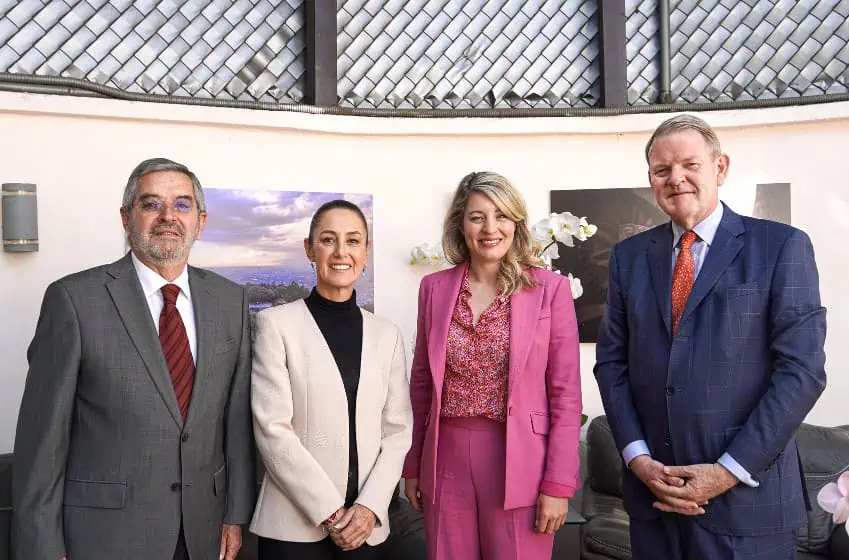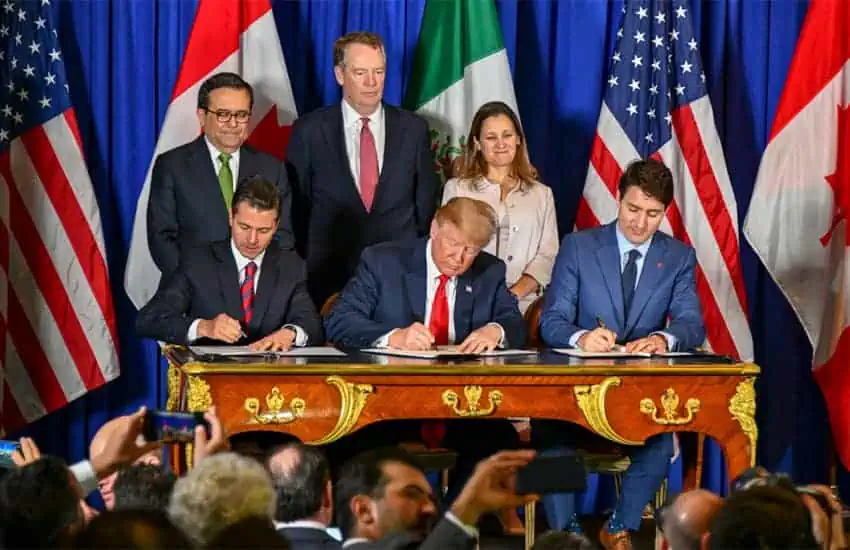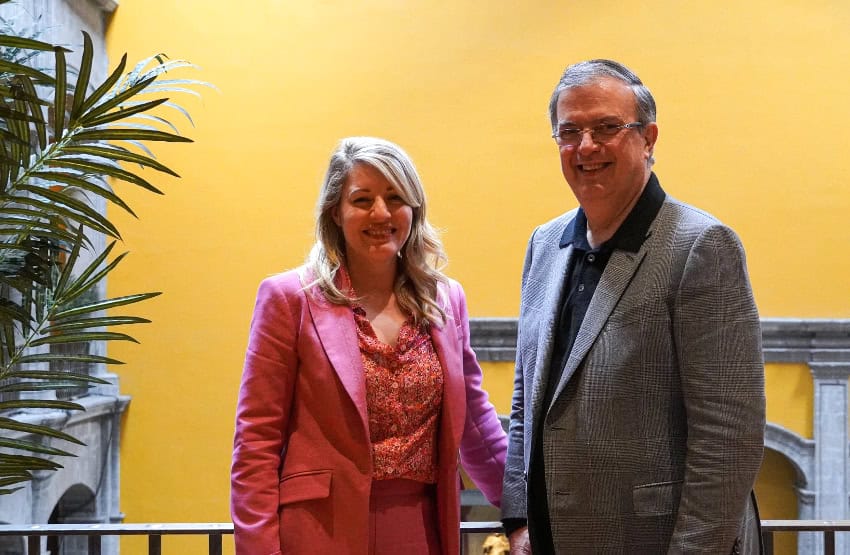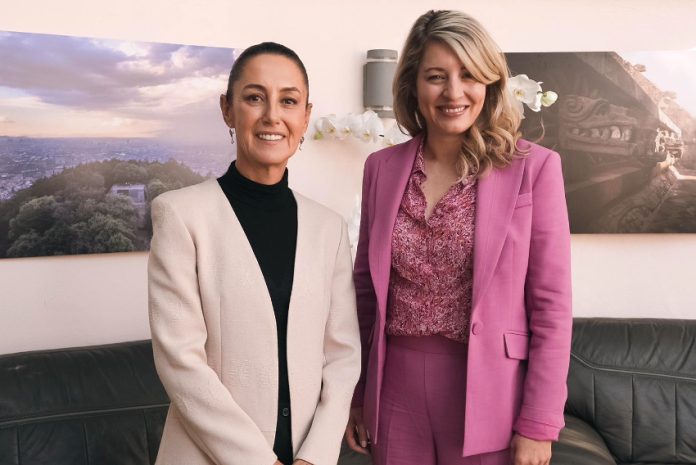The USMCA trade pact, which is up for review in 2026, was a key focus of a meeting on Wednesday between President-elect Claudia Sheinbaum and Canada’s Foreign Minister Mélanie Joly.
Sheinbaum, who will be sworn in as Mexico’s first female president on Oct. 1, received Joly at her “transition headquarters” in the Mexico City borough of Iztapalapa. Mexico’s future foreign affairs minister Juan Ramón de la Fuente also attended the meeting.

Sheinbaum revealed on X that she spoke about “the future” of the Mexico-Canada relationship with Joly and the “importance” of the United States-Mexico-Canada Agreement, the free trade pact that superseded NAFTA in 2020.
“The foreign minister’s main interest is to know our position on USMCA,” she told a press conference on Wednesday.
“We agree with her and the idea of strengthening the agreement,” Sheinbaum said.
The USMCA, the product of trilateral negotiations that began in 2017, is scheduled to be reviewed in 2026. While expressing support for a strengthening of the pact, Sheinbaum said she believed the review would be “minor.”

The president-elect also said she and Joly discussed “the possibility of maintaining and increasing [the number] of work visas for Mexicans” interested in working in Canada.
The two countries collaborate on the Seasonal Agricultural Worker Program, in which tens of thousands of Mexicans travel to Canada to work every year.
Sheinbaum also told reporters that she and Joly discussed Canadian investment in Mexico, and Julian Assange’s release from prison after the Wikileaks founder accepted a plea deal from the United States.
“We acknowledged his fight for freedom of speech and the right to information. We were very pleased that he was finally released,” she said.
For her part, Joly said on X that she and Sheinbaum discussed “how we can continue to strengthen the Canada-Mexico relationship and advance our shared priorities as North American partners.”
The Canadian government said in a statement that the foreign minister congratulated Sheinbaum on “her historic electoral victory that will see her become the first woman president of Mexico.”
The statement also said that Joly, Sheinbaum and other officials “reflected on 80 years of friendship and robust relations between Canada and Mexico.”
“… While highlighting the 50th anniversary of the Seasonal Agricultural Worker Program and its successes, Minister Joly and her counterparts underscored the importance of regular migration pathways for both countries’ economies,” the Canadian government said.
“They agreed to continue to regularly review the broad range of issues affecting mobility, including visa processes, to support safe and orderly migration.”
Among other issues, the Canadian government statement said that Joly and Sheinbaum “discussed the importance of collaborating to advance North American economic competitiveness” and “the need to work together to combat climate change.”

Joly also met with Mexico’s incoming economy minister Marcelo Ebrard, with the former saying on X that they discussed the “importance of working together to advance North American economic competitiveness and how our counties can collaborate to expand trade and investment.”
In an interview with the El Universal newspaper, the Canadian foreign minister weighed in on the proposed judicial reform President Andrés Manuel López Obrador sent to Congress earlier this year.
The proposed reform — which if approved would allow citizens to directly elect Supreme Court justices and other judges — is a decision for the Mexican government, “but at the same time we hope that a country like Mexico respects the rule of law,” Joly said.
She emphasized the need for stability and predictability in Mexico because “it’s difficult to invest in a business environment where there are too many risks.”
Among other remarks, Joly said that Canada, Mexico and the United States have the opportunity to establish a “fully integrated” supply chain and to be “one of the most successful [economic] partnerships in the world.”
With that comes an opportunity “to bring lots of Mexicans out of poverty, increase the middle class in Canada and Mexico, and fundamentally be a hub for talent and innovation,” she said.
“I’m really optimistic, but at the same time we need to do the work. So that’s why I’m here,” Joly said.
With reports from Milenio, Quadratín and El Universal
